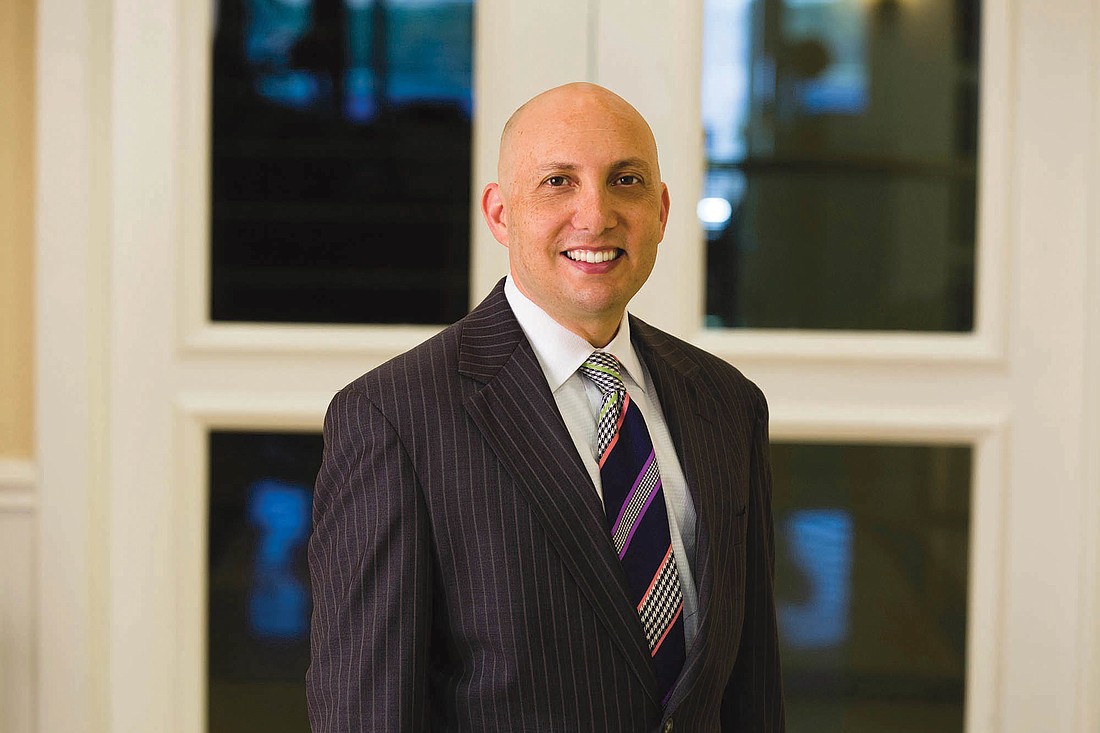
By Michael Freed • Gunster, Yoakley & Stewart
I was in a recent hearing – me; the judge; who happens to be a woman, and opposing counsel, a middle-aged, white male from out of town.
I, too, am a white male and, as much as I hate to acknowledge it, I, too, am middle-aged, given that double my age is 102. I hesitate to include so much demographic information; you be the judge, however, of its relevance.
What occurred during the hearing is not unique. Indeed, that underscores the point of this article.
It was an hourlong hearing. It was briefed ahead of time by both sides, and the judge came to the hearing well-prepared.
It was my motion, so I argued first. The judge stopped me several times and asked questions, giving me the opportunity to know what concerned her while there still was time to speak to the concerns.
It surprised, but did not shock, me when opposing counsel jumped in during my argument, trying to respond to one of the judge’s questions. The judge politely reminded the lawyer that he would have his chance to respond.
That should have been enough for any lawyer concerned about the court’s perception of him. It was not, however, the last interruption from this lawyer.
He proceeded on numerous occasions to interrupt the judge; he spoke over her, when she asked (or attempted to ask) a question he gradually increased his volume and tone just enough to drown out the judge so that it would appear (at least to him) that he had the floor.
At times, he listened as the judge started to form a question, but cut her short as soon as he thought he grasped the question. He then “politely” said something like, “Good thought your honor; I see where you are going.” He then answered the question that he assumed the court was going to ask.
In short, he “mansplained.”
It was rude. It was condescending. And, it was chauvinistic.
But, here’s the thing: That lawyer, like other unrecovered mansplainers, spoke as he did to the judge as he likely speaks to other women in his life, including female colleagues and opposing counsel, notwithstanding that it was rude, condescending and chauvinistic.
Morality, doing what is good and right, has not convinced the lawyer to be kind. For him, and others like him (and likely many of us men from time to time), morality does not prevent mansplaining.
Let me make a business case against mansplaining: It is unwise to offend the decision-maker.
The primary goal in appearing before a judge is to prevail. Of course, the facts and the law drive the outcome. But all else equal, lawyers generally aspire for the judge to respect, maybe even like, them.
Frustrating, annoying or angering the judge is contrary to that purpose. It also is contrary to the career objective of being respected as a professional.
Even the youngest child knows to “be nice” when asking a parent or a teacher for something. Why would anyone behave otherwise?
The answer to that question reveals the depth of the mansplaining challenge. Men speak over female judges even though it contravenes the lawyers’ own objectives.
This happens because mansplaining is so ingrained, endemic and often so accepted or at least tolerated, that we do it despite the fact that it is at times self-destructive.
In that sense, mansplaining is similar to other self-destructive behavior, conduct and practices — we engage in it to our own detriment.
If you are not persuaded to stop mansplaining because it is unkind, stop because it’s bad for business.
Michael Freed is a board-certified business litigator with Gunster, Yoakley & Stewart; past president of the JBA; and founder of FreedToRun.